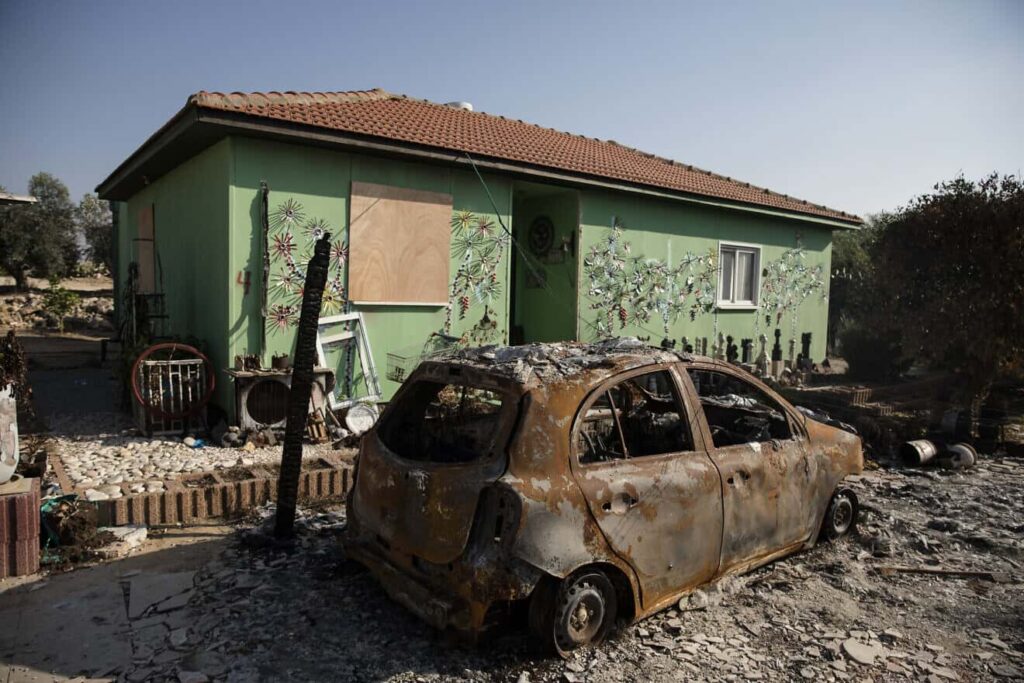
Building Israel With Our Own Hands
Post-October 7, Israelis don’t know who they can trust to work in their communities. After reports that Gazan civilians who worked in Israel provided valuable intelligence to Hamas before their assault on the south, many Israeli citizens want to completely prohibit non-Israeli Palestinian workers from entering Israeli towns for work.
“They literally want us all dead,” Rachel Pearson, Co-Founder of Byadayim Shelanu, told Israel365 News. “They’re building these houses because they want to live in them one day. They really believe that this is going to be their land.”
Those who live under the Palestinian Authority in the West Bank, that is, Judea and Samaria, as well as Gaza are not Israeli citizens and cannot legally enter Israeli controlled land without a permit or special permission.
Soldiers and civilians who witnessed the brutal Oct. 7 attacks relayed that Hamas knew about the specific details of each Kibbutz and city they attacked and carried detailed maps about Israeli towns during their rampage. It’s believed that Hamas got this data from Gazan ‘civilians’ who had permits to enter Israeli neighborhoods for work.
Polls have shown that around 73% of Palestinians support Hamas’s Oct. 7 attack on Israel and their radical ideology of eradicating the Jewish state. “They want to repeat Oct. 7 over and over again,” Pearson said. “I think it’s pretty clear that inviting them into your house to work and into your town is not a good thing.”
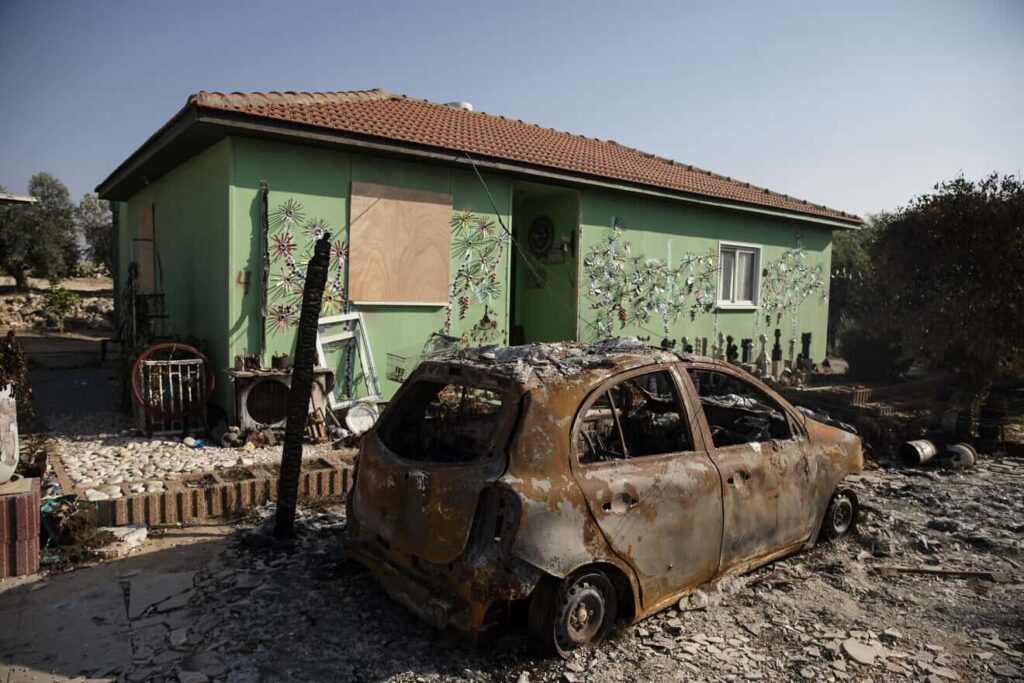
These Palestinian laborers who had permits mainly worked as construction workers and farmers in Israel. Since the war started, the Israeli government stopped issuing these work permits. Many Israeli civilians desperately want this suspension to be permanent, even as the labor shortage is causing financial strains on industries and small businesses.
Women, like Malkah Fleischer and Rachel Pearson, who are both residents of Efrat, an Israeli town in Judea and Samaria, have been spearheading campaigns to dissuade Israeli contractors from hiring these Arab laborers. In December of 2023, they founded the organization Byadayim Shelanu, meaning “In Our Hands,” to advocate against hiring people who don’t have Israel’s best interests in mind, or in other words, who want to see Israel completely destroyed.
“The organization is trying to foster a much healthier outlook towards how the Jewish state builds towns and what the future is for labor in Israel,” Fleischer told Israel365 News, “[especially] when we’re amidst a war with people who [we] ostensibly support.”
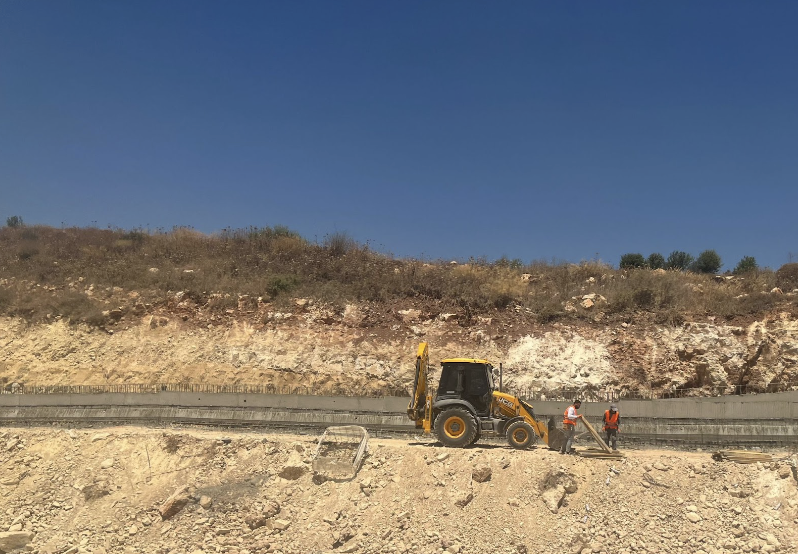
Byadayim Shelanu has engaged in much advocacy work to prevent these workers from being allowed back into Israel, including organizing rallies, meeting with legislators at the Knesset, and hosting speakers such as Caroline Glick. The organization is primarily concerned with allowing these Palestinian workers, many of whom they believe wish Israelis harm, willingly into their neighborhoods. According to the organization, many of these workers want to hurt Israel, or commit what’s known as “construction terrorism,” intentionally doing a bad job when building infrastructure, causing Israeli owners and contractors to lose money on repairs.
“We are an organization that is working to keep haters out of our town,” Fleischer said. “To keep out anybody who thinks that they can make money off of us while trying to undermine us at the same time.”
Many building projects in Efrat were shut down at the start of the war and talks of starting up those projects again with Palestinian labor has brought immense concern upon many of the residents of Efrat. Many contractors have learned the lessons of Oct. 7 and are not rehiring these workers, yet some are still willing to continue these previous hiring practices.
All Yishuvim (settlements) in Judea and Samaria have increased their security since the start of the war, but simply adding more security isn’t enough to deter evil people from inflicting terror. “You shouldn’t have dangerous people working on your projects,” Fleischer said. “It’s not logical, it’s not Zionist, it’s just not the way forward for the State of Israel.”
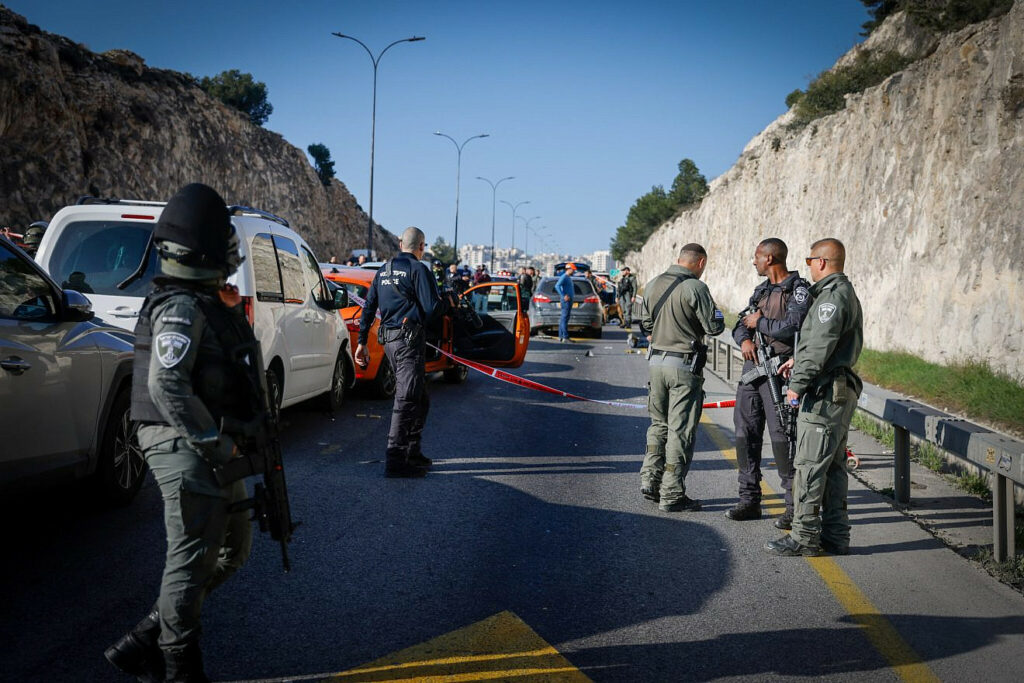
Byadayim Shelanu has attempted to reach out to such contractors to explain the importance of only hiring workers that support the State of Israel. They have also tried to work with the local government to show that the people of Judea and Samaria want to see real change in order to keep their homes safe.
One way to combat the issue of labor shortage that this would create is by incentivizing Israelis to enter this labor market or hiring foreign labor. Ariel Avidar, a former CIA case officer now living in Judea and Samaria, believes any attempt to hire foreign labor on a large scale in Israel is futile, due to American pressure to hire Palestinian laborers.
“The United States has balked at the notion of Israel importing foreign workers, using the guise of potential worker exploitation,” Avidar told Israel365 News. “The unspoken U.S. reasoning is that the U.S. is opposed to a series of economic measures [because they] will incentivize the migration of Palestinian Authority Arabs [from Palestinian Authority-controlled areas of Judea and Samaria].” Many foreign workers have not been brought into Israel to work because of this, even before the war when perceptions of Israel weren’t as dangerous as they are now.
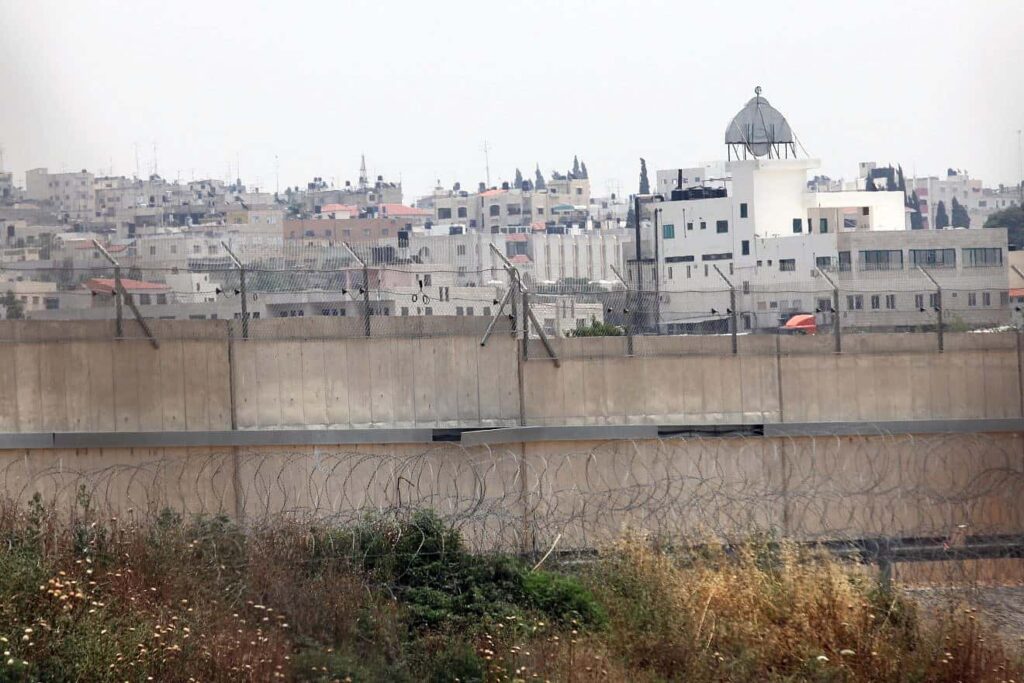
Although Avidar believes Palestinian labor poses a threat to Israelis, the reality of the situation in practice, combined with American pressure on Israel, leaves Israelis at a standstill. “We still have to live in a reality where time is of the essence,” he said. “A reality where work sites remain vacant, loans are unpaid, deadlines are not met, and people lack homes and schools and facilities.”
Ita Levine, a resident of Shiloh, a city in Judea and Samaria, understands that there are good people living under Palestinian Authority rule who want to work with Israelis and don’t associate themselves with Hamas. However, her utmost priority is the safety of her country and people, by whatever means necessary. “I have to err on the side of protection and security,” she said. “I would really love to be able to err on the side of coexistence and brotherhood… But I just don’t believe that it’s possible at the moment, unfortunately.”
Keep God’s Land is dedicated to strengthening and defending Israel’s right to its biblical heartland, with the ultimate goal of Israeli sovereignty over Judea and Samaria.
The post Building Israel With Our Own Hands appeared first on Israel365 News.
Israel in the News